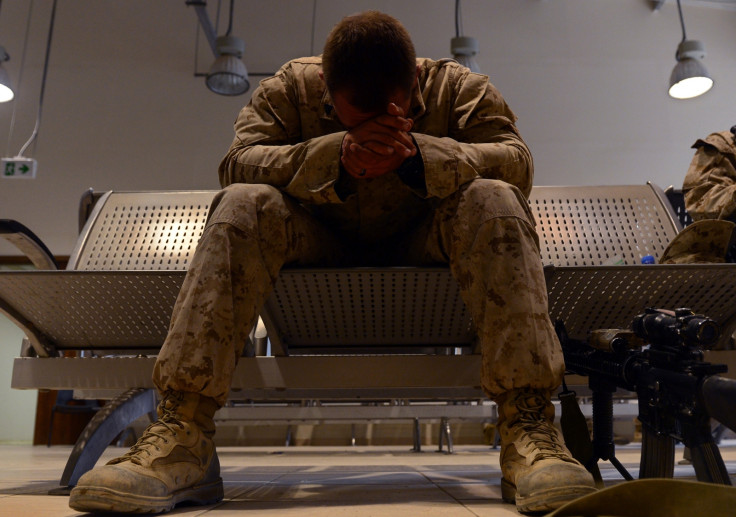US Military Sexual Assault Survey Condemned for 'Invasive' Questions
Pentagon defends questionaire, saying understanding the problem 'requires asking tough questions'

US military personnel shocked and offended by explicit questions in a sex assault survey that thousands were asked to complete.
The survey is conducted every two years and the latest version, developed by the Rand Corpm includes graphic and highly personal questions on sexual acts.
Military members told The Associated Press that they felt upset by the questions and in some instances felt re-victimised by the no-holds barred language.
Pentagon officials confirmed receiving complaints that the questions were "intrusive" and "invasive".
The US Defence Department defended the survey by saying the explicit and detailed questions were to gain more accurate results on sexual assaults and to encourage more victims to come forward.
Nate Galbreath, the senior executive adviser for the Pentagon's Sexual Assault Prevention and Response Office (Sapro) upheld the questionnaire which was sent out to 560,000 military personnel.
"This is a crime of a very graphic nature," Galbreath said. "For us to improve our understanding, it sometimes requires asking tough questions."
"Research has told us, if I ask someone, 'Have you ever been raped?' they will say, 'No,'" Galbreath said. "If I ask that same person, 'Have you ever been forced to engage in sexual activity against your will?' they might say 'Yes.' It's because of the loaded terms like rape and sexual assault, that it's not very clear to a lot of people what we may be asking about."
The survey begins with questions about sexual harassment, asking about jokes, "sexual gestures or sexual body movements", requests to take or share sexually suggestive pictures or videos, or efforts to establish "an unwanted romantic or sexual relationship".
A sample question, from a series of 11 sexually graphic questions out of 34 asked, "Before 9/18/2013, had anyone made you insert an object or body part into someone's mouth, vagina or anus when you did not want to and did not consent?"
"We've had a number of complaints," said Jill Loftus, director of the Navy's sexual assault prevention program.
"I've heard second- and third-hand that there are a number of women, officers and enlisted, who have gotten to the point where they've read the questions and they've stopped taking the survey. They found them to be either offensive or too intrusive — 'intrusive, invasive' — those are the words they used."
A report on the 2012 anonymous survey results estimated that 26,000 military members may have been sexually assaulted or subjected to unwanted sexual contact.
Members of Congress complained that the Defence Department wasn't doing enough to combat sexual assault and tried to force changes in the Pentagon's legal and command procedures.
Some major changes have taken place, such as stripping commanders of the ability to overturn verdicts and strengthening protections for victims. But other changes, such as keeping defendants' commanders completely out of the process are still not law.
The report on the 2012 survey, which was released last year, showed sexual assault incidents in the military rose from about 19,000 in the 2010 survey to 26,000.
In 2011 a documentary – The Invisible War – detailed the high rates of sexual assaults committed by US personnel on others serving in the military, and led to changes in policy.
© Copyright IBTimes 2025. All rights reserved.






















